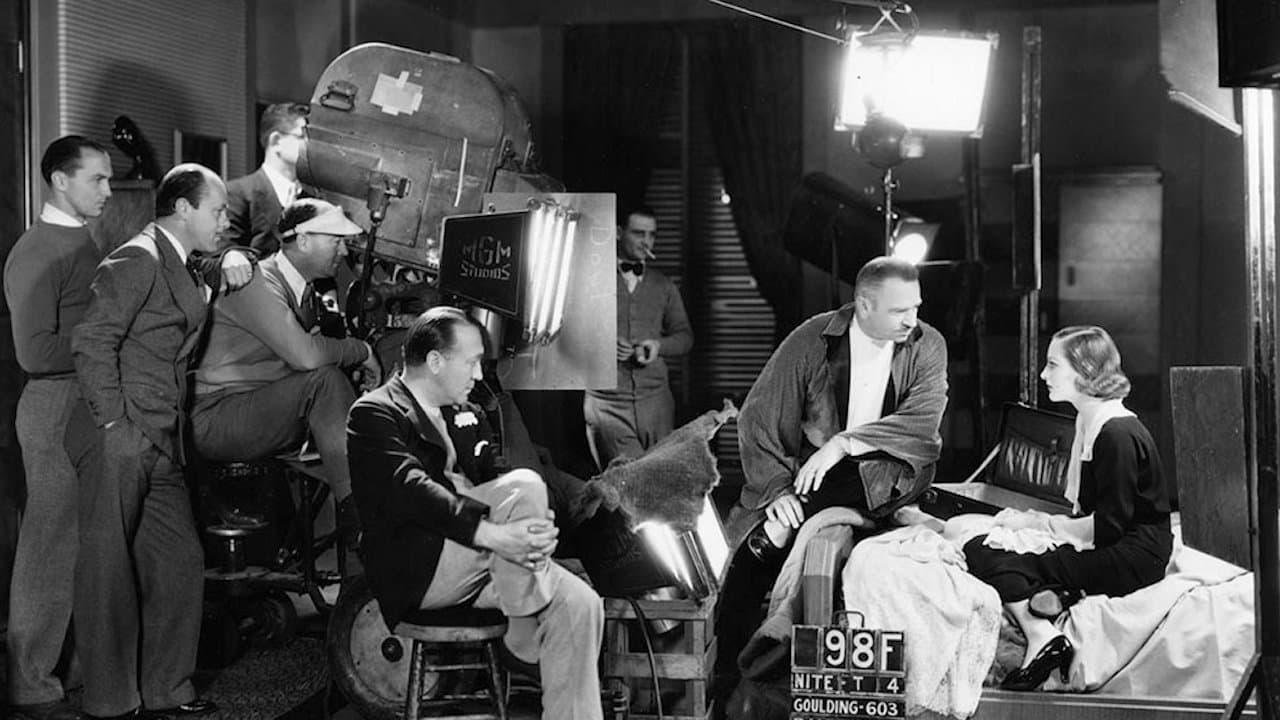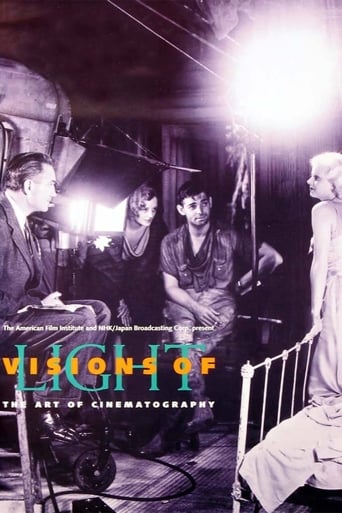

A documentary about the history and influence of movie photography, featuring many of the most acclaimed and successful cinematographers of the 1960's, 70's and 80's.If you're interested in how a movie is photographed - and all true cinephiles should be - this excellent documentary is a great way to learn, contains a slew of captivating shots from a hundred years of cinema, and captures the comments of some of the very best directors of photography ever to strike a light. It's also a little bit of a time capsule; made just prior to the advent of digital photography and projection it's a glorious celebration of good old soupy celluloid and just what cameras are capable of. It starts at the birth of cinema and moves through the silent era, the restrictions of sound, the experimentation of film noir, the move to colour, the influence of European new wave and the amalgamation of all these elements into modern cinematography. Every single one of the interviewees is intelligent and articulate, but also surprisingly different. They talk about technical effects like diffusion and how to light actors, they talk about symbolism through use of colour and shade, they talk about relationships with directors and with their subject matter, and what they all share is a burning obsession to make whatever they're shooting come alive. Movies, irrespective of their style or genre, should first and foremost be passionate, and cinematography is the key to this. I particularly like Hall's philosophy, whereby accidents and mistakes may have just as much value as the most elegantly composed traditional shot, and there are plenty of humorous anecdotes, such as Fraker's vignette about the telephone in Rosemary's Baby. Movies contain many key elements - music and editing are just as important - but without photography they simply wouldn't exist. It is the most important and integral aspect of any film and the power of great imagery is extraordinary, universal and beautiful. A co-production of the American Film Institute and Japanese broadcaster NHK, this was shown at the 1992 Cannes Film Festival. Director McCarthy was Variety magazine's senior film critic for thirty years from 1979 - 2010, and also made another excellent feature documentary in 1990 called Hollywood Mavericks. This is hard to find (my copy is from an old home videotape from a BBC TV screening) but is available in Europe through the BFI and is well worth tracking down.
... View MoreYes, it ignores most of Europe and the rest of the worlds contributions, but for what it is, it's just lovely.It's an introduction to the art of cinematography in American movies, with clips and comments from the greats about American film from birth till 1990 or so, when it was made. Some of the cinematographers are humble and self-effacing, some clearly have large egos, but they all obviously love and care deeply about film and film making.This is a terrific film to show your children, a behind the scenes that is informative rather than salacious or snarky.Highly recommended.
... View MoreSpoilers herein.I was disappointed in this -- not so much because it was bad, but because we get so few chances at this sort of thing. When we do, we should take advantage of it.My own feeling about films is that the actor is the last person to trust to understand the project. An actor has his own concerns, and some of those conflict with those of the filmmaker. It is the filmmaker's job to create the vision. So too with cinematographers. Whenever one of them wrests control of a film, the film is lessened from what it might have been.That's because film is a uniquely multidimensional experience. Take film music. This is is an art all to itself. Hearing film composers chat about their work is interesting, and that is the level of what we get here. But hearing a talented critic of film music talk about many composers and techniques and effects is a real treat. We missed that here, even before we get into some incredible examples that were overlooked, because because of politics, perhaps because they were too sophisticated for target TeeVee audience, perhaps because the requisite talking head was unavailable.But on beyond that, how wonderful would it have been to have someone intelligent use even these same examples and speak from the perspective of filmmaker. That guide would let us know the negatives of the craft (sorry, couldn't resist), how effects can be composed across skills (art design, editing, acting, writing). It would be worthwhile. To listen to these guys, a film starts with a story, everyone supports the story as best they can, and of these the photographer brings it to life, perhaps artfully. A low point is when we are told about `green is for intelligence' concerning `The Last Emperor.'What a scandal. What a missed opportunity.Ted's rating: 2 of 4 -- Has some redeeming feature.
... View MoreThis documentary is a history of cinematography, illustrating major advances and highlighting the work of major cinematographic innovators. Although there are snippets of on-screen interviews, the bulk of the film consists of (glorious) film clips illustrating many of the high points in the history of cinematography.
... View More